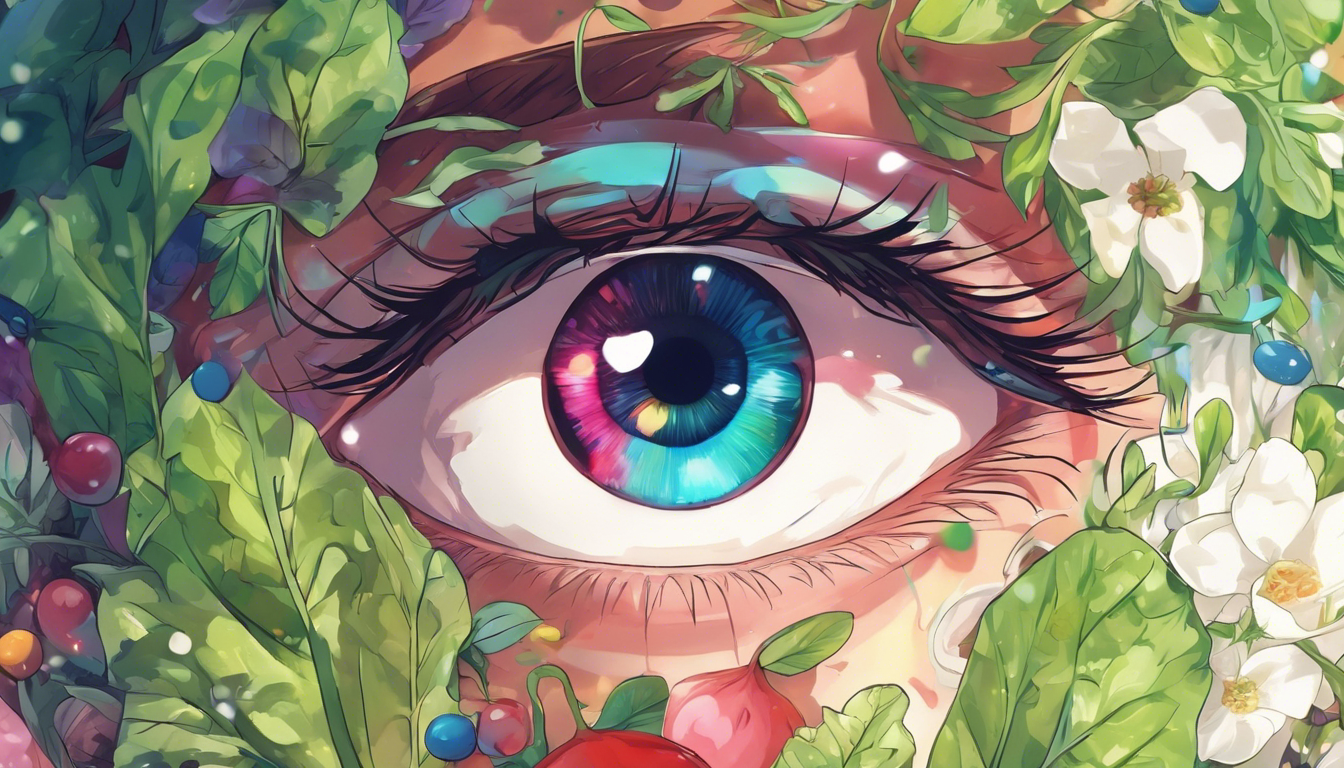
Veganism has become increasingly popular in recent years, with more people embracing a plant-based lifestyle for various reasons, including health, ethical concerns, and environmental sustainability. While the vegan diet offers many health benefits, there are several misconceptions regarding its impact on eye health. Let’s debunk some common myths and present factual information about the vegan diet:
Myth #1: Vegans lack essential nutrients for good eye health
The truth: It is true that certain nutrients necessary for eye health are more commonly found in animal products. However, with proper planning and a diverse vegan diet, it is possible to obtain all the essential nutrients for optimal eye health. Here are some key nutrients and their plant-based sources:
- Vitamin A: Important for maintaining healthy vision, vitamin A is abundant in carrots, sweet potatoes, spinach, and other leafy green vegetables.
- Lutein and Zeaxanthin: These antioxidants play a vital role in reducing the risk of age-related macular degeneration (AMD) and can be found in kale, spinach, broccoli, and other green vegetables.
- Omega-3 Fatty Acids: Flaxseeds, chia seeds, hemp seeds, and walnuts are excellent plant-based sources of omega-3s, which contribute to overall eye health.
- Iron: While iron is more easily absorbed from animal products, vegans can get iron from plant-based sources such as legumes, fortified cereals, tofu, and dark leafy greens.
- Zinc: Nuts, seeds, legumes, and whole grains are good sources of zinc, an important mineral for eye health.
Myth #2: Vegans are more prone to developing cataracts
The truth: Cataracts, a clouding of the eye’s lens, are often associated with aging and prolonged exposure to UV radiation. While diet can play a role in reducing the risk, there isn’t sufficient evidence to suggest that vegans are more prone to cataracts compared to non-vegans. A well-balanced vegan diet rich in antioxidants, vitamins, and minerals can actually contribute to maintaining healthy eyes and reducing the risk of eye diseases.
Myth #3: Vegans lack protein for proper eye function
The truth: Protein is important for various bodily functions, including eye health. While animal products are commonly known for their protein content, vegans can still meet their protein needs through plant-based sources. Legumes (such as lentils, chickpeas, and beans), tofu, tempeh, seitan, and quinoa are excellent sources of plant-based protein. Additionally, consuming a variety of whole grains, nuts, and seeds can contribute to meeting protein requirements.
Myth #4: Vegan diets do not provide sufficient energy for healthy eyes
The truth: It is a misconception that vegan diets lack the necessary energy for maintaining healthy eyes. Adequate energy levels are important for overall health, including eye function. By consuming a well-balanced vegan diet consisting of whole grains, fruits, vegetables, legumes, nuts, and seeds, people can obtain sufficient energy to support their eye health.
In conclusion, the vegan diet can provide all the necessary nutrients for healthy eyes when planned thoughtfully and varied. Vegans can obtain essential nutrients through plant-based sources, ensuring their eye health is not compromised. As with any diet, it is important to maintain a well-rounded approach and consult with a healthcare professional or registered dietitian to ensure all nutritional needs are met.